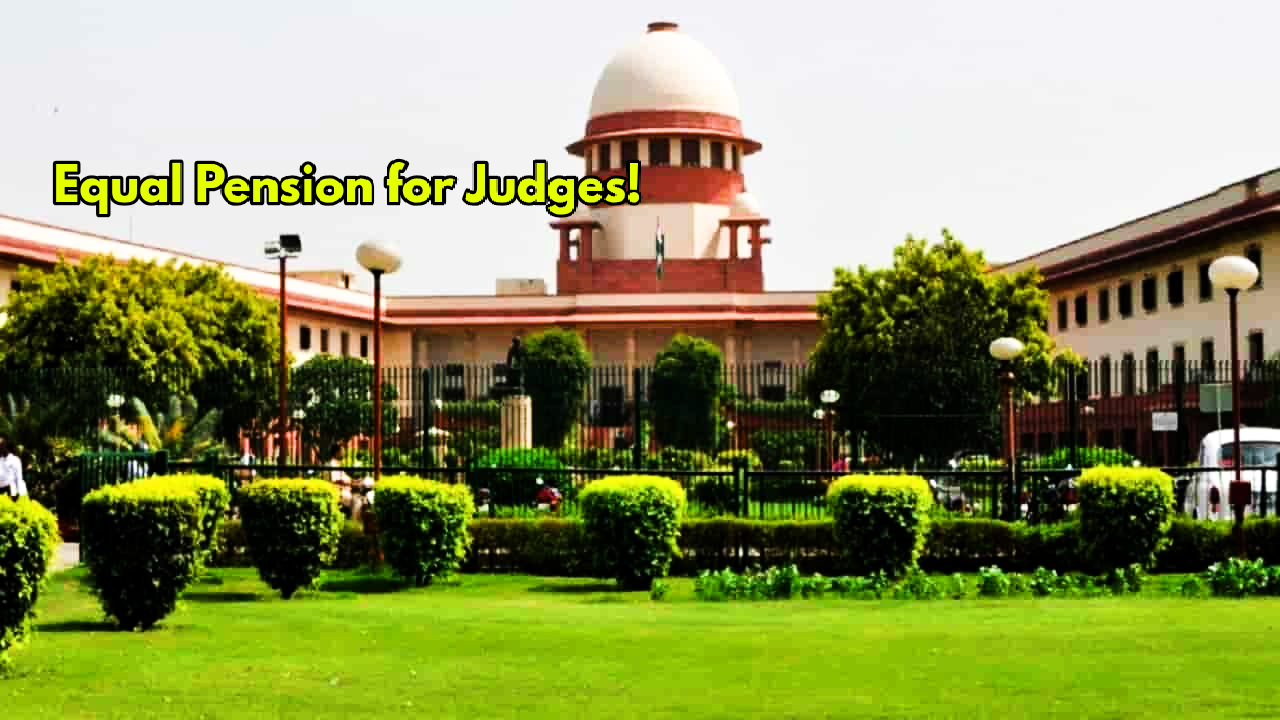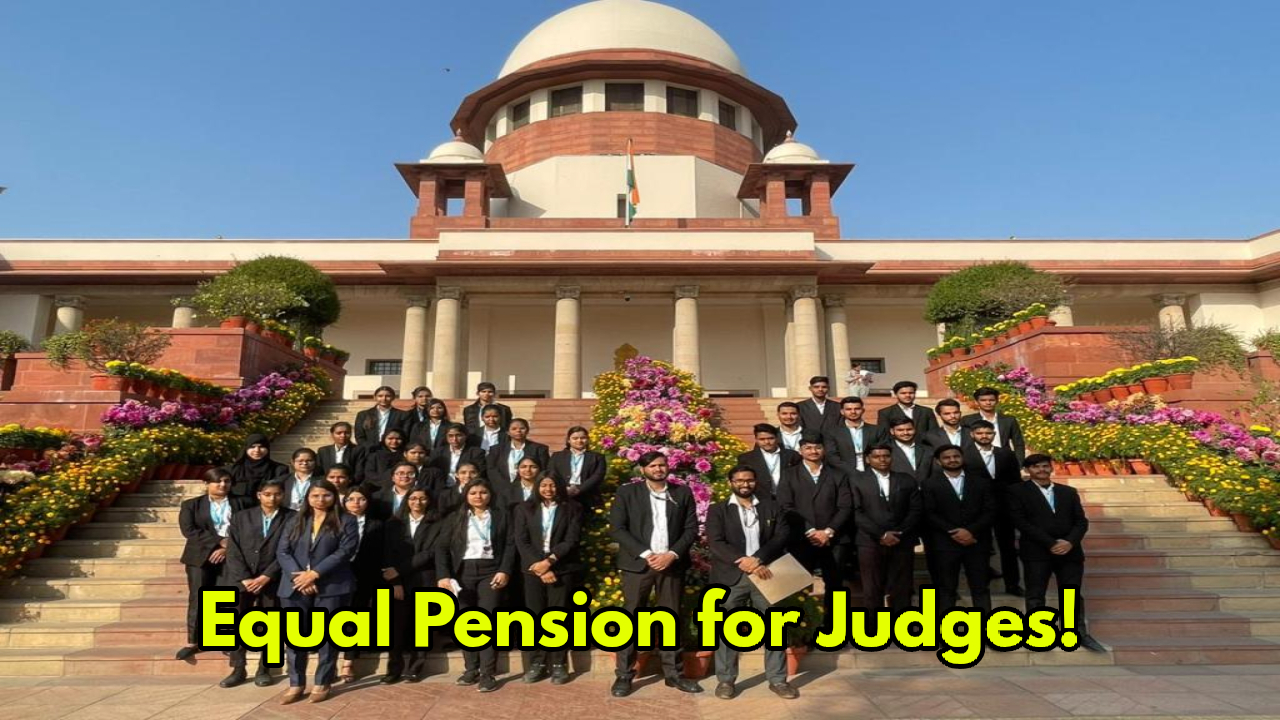Supreme Court Makes Landmark Judgment: “One Rank One Pension” for All Retired High Court Judges. In a landmark judgement that will change the retirement picture in the Indian judiciary forever, on Monday, the Supreme Court ruled that all retired High Court judges will be entitled to the same pension regardless of how they entered the judicial system. Whether judges came up through the district courts or were appointed from the bar, all will receive the same pension based on the One Rank One Pension (OROP) doctrine.
Supreme Court Targets OTT Obscene Content – Major Censorship Move Expected Soon
A bench of Chief Justice of India B R Gavai and Justices A G Masih and K Vinod Chandran, categorically ruled that any difference in pension rights by the paths of recruitment is unconstitutional and in violation of Article 14 of the Constitution, which provides for equality under the law.
B.V. Nagarathna : First women Appointed as Chief justice of India
Equal Salary, Equal Dignity: The Essentials of the Judgment
The Supreme Court directed that-Retired Chief Justices of High Courts will receive at least an honourable pension of Rs 15 lakh yearly.All other retired judges of the High Court, including those who served a term as additional judges, will receive Rs 13.65 lakh yearly.
The path of recruitment, whether it was as a district judge or as an advocate will not affect the pay.
The length of service or any break in judicial appointments will not have any impact on pension entitlements. The judges inducted after the NPS commenced will receive full pension entitlement. Further, in such cases, state governments must reimburse all NPS contributions they deducted with interest.
 3Dtaboola_23783841
3Dtaboola_23783841
In the unfortunate case of a judge dying in office, the Union must provide gratuity to the family and provide any pension to the widow or legal heirs, regardless of whether the judge was a permanent or additional judge.
A Bold Step Toward Balance
The Court made no bones about condemning the inequity. “The lower pensions to judges who originated from district courts constitutes discrimination”, the bench said. It held that the basis of entry or the type of scheme cannot affect the terminal benefits of judges who performed the same constitutional function.
In dealing with the refusal of pf benefits, to certain retired judges, the court reiterated “The Union shall follow the One Rank One Pension principle for all judges, irrespective of their high courts.”
Why it Matters
This ruling is about more than money, it’s about dignity, fairness, and equal rights under the constitution. High Court judges, whether by appointment or elevation from the District Court of Appeal, are all members of the nation’s justice system. The Supreme Court is sending a message by invoking the OROP principle, to equally recognize their professional service to the nation.
What’s Next
The Union government must now act quickly to implement all of these changes so all eligible judges, and their families, can receive what they are entitled to. Legal experts see this as a positive, in that it may similarly impact pension policies in the other thoughtfully conceived feet of government
This judgment is a win not only for retired judges , but for the principle that justice muststart with those who deliver it.
